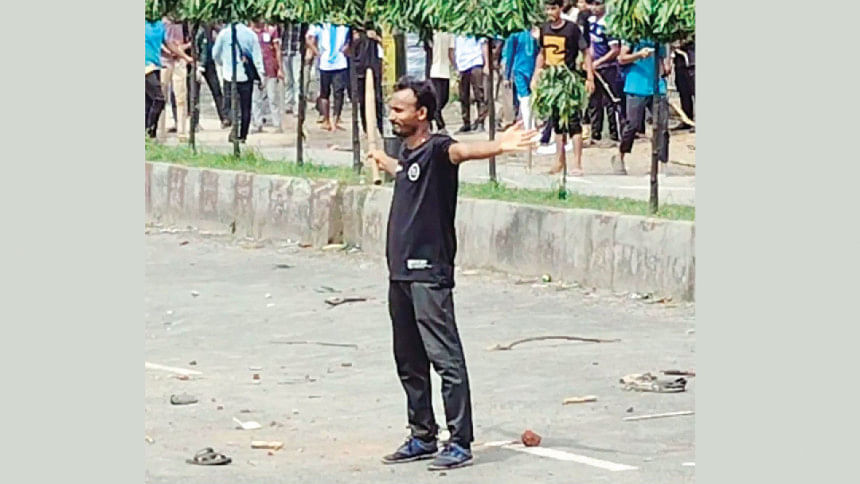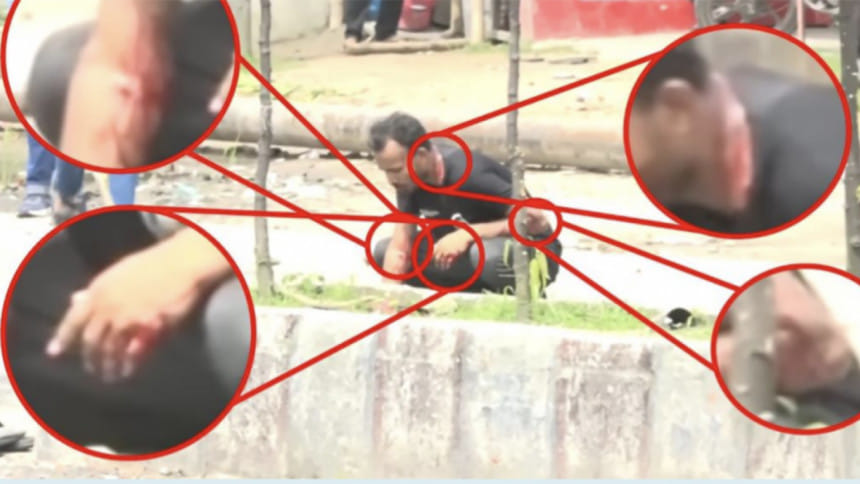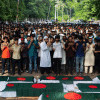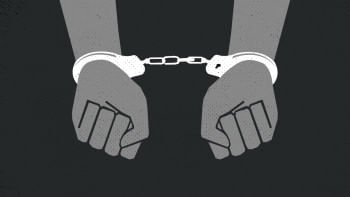Abu Sayed victim of extrajudicial killing by police: UN report

The UN Human Rights Office in its fact-finding report on the 2024 Bangladesh mass uprising described the killing of Abu Sayed, a student of Begum Rokeya University, as an extrajudicial killing by the police.
The report revealed that at least two police officers shot Abu Sayed multiple times with shotguns loaded with lethal metal pellets, targeting his chest.
It also said that there were no signs of severe head injuries that could suggest an alternative cause of death, such as Sayed's head hitting the ground while being transported to the hospital.
The Office of the United Nations High Commissioner for Human Rights (OHCHR) today released the report on human rights violations and abuses related to the July uprising in Geneva.
Quoting a police account, the report said, on 16 July, clashes erupted between Chhatra League supporters and protesters when the latter attempted to forcibly enter the university in Rangpur. The police then fired gas shells and blank bullets to disperse the crowd.
The police report said Sayed was seriously injured and later died at Rangpur Medical College Hospital, with the cause of death listed as "head and gunshot injury".

However, based on witness testimonies as well as video evidence, the OHCHR believes that the police were directly involved in Sayed's death and are responsible for it.
The report stated that police in collaboration with Chhatra League supporters attacked students with batons and sticks and also fired tear gas and shotguns loaded with lethal pellets at the protesters.
When police started shooting, Sayed raised his hands. Videos and eyewitness accounts show that he held a bamboo stick in one hand but did not pose any threat to officers positioned approximately 14-15 meters away.
Eyewitnesses reported that Sayed shouted, "shoot me", and two police officers then shot him multiple times in the torso with shotguns.
OHCHR examined publicly available videos and images of the shooting, which were initially posted on social media and enhanced by their digital forensics team. The analysis helped corroborate witness testimonies and reconstruct the events leading to Sayed's killing.
Images extracted from the videos show that at least two police officers fired at Sayed. Red markings were visible on his neck, and what appeared to be blood stains were found on his shirt, according to the report. Other images showed injuries on his body, including his hands, arms, elbow, and neck. Sayed was seen spitting blood, corroborating medical findings that the pellets likely penetrated his neck and lungs, causing internal bleeding.
Citing a witness, the report said Sayed was taken to a hospital, where medical professionals determined that the pellets likely entered his lungs, causing the internal bleeding.
OHCHR's forensic physician reviewed the available medical records for Sayed's case and found that no autopsy had been conducted according to international forensic standards.
The physician's examination of the medical evidence, including photos of Sayed's body, revealed shotgun wounds, with at least 40 metal pellets on the right side of his chest and 50 on the left, near vital organs such as the heart, lungs, and abdomen.
The forensic analysis concluded that the injuries were consistent with Sayed having been shot at least twice with shotguns loaded with lethal metal pellets from a distance of approximately 14 meters. Further forensic examination of the video footage showed visible bleeding from Sayed's neck, chest, and arms, followed by signs of hypovolemia (low blood volume) and dizziness.
Abu Sayed was a 23-year-old student of Begum Rokeya University in Rangpur. He was the first martyr of the July uprising. His death fuelled the anti-discrimination student protests, which ultimately toppled the Sheikh Hasina-led government.

 For all latest news, follow The Daily Star's Google News channel.
For all latest news, follow The Daily Star's Google News channel. 









Comments